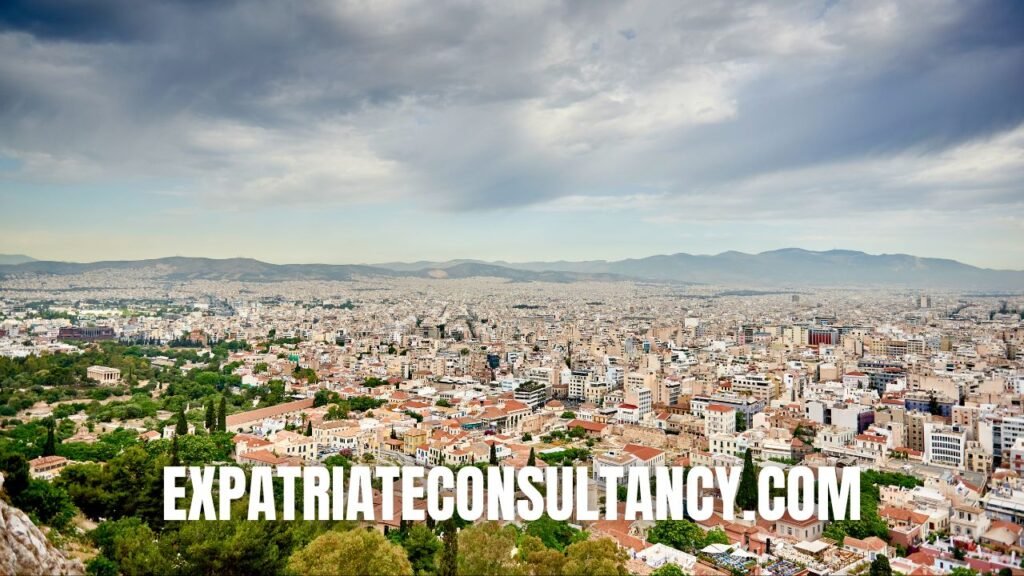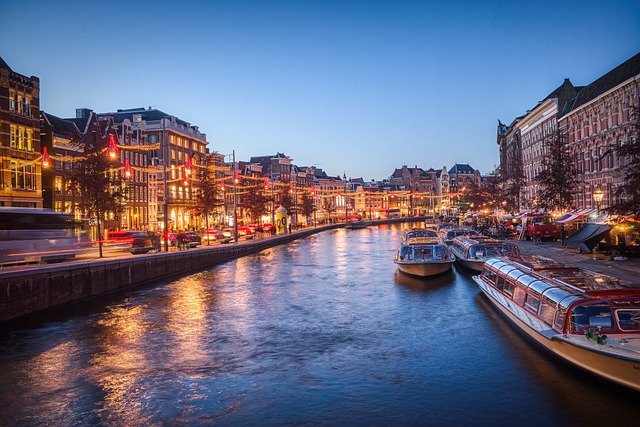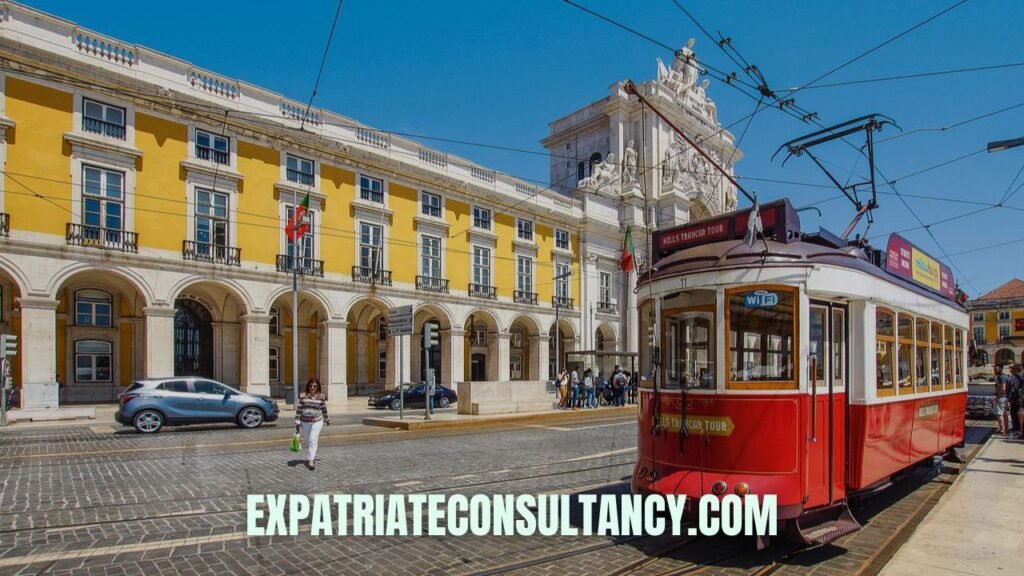From bird drops to lucky eyes, there are some very creative tourist scams in Europe
After visiting over 30 countries in the entire Europe, I witnessed natural and human beauties that will never be erased from my memories. But I also saw some very creative tourist scams and all sorts of people trying to take advantage of travelers that came to visit a new country on this splendid continent.
People that, in their greed of separating innocent tourists from their valuables, developed travel scam methods so creative that one would stand up and clap for their talent — if, obviously, they were not the criminals they are.
I am not talking about obvious things like taxi scams or taxi cab drivers taking the long way to your destination… no, no, no. I am talking about real scam artists. People that could teach at the recently discovered Scam University in Brazil.
In the next paragraphs, you will discover a selection of tourist scams used by con artists all over Europe, from London to Athens, from Lisbon to Moscow.
Be aware that as scary as some of these scams may look, Europe is still a very safe place, especially when you compare it with Mexico’s violence rates, for example.
Since we are talking about scams and criminal methods, check later our article about the creative methods used by Brazilian criminals.
The Pigeon Drop Scam (Popular Scam in Spain Also Known as Fake Bird Poop)

Scam Location: Athens (Greece) and large cities in Spain, but also happens anywhere with lots of pigeons around.
Athens is a place prolific for scammers. From the shady types walking around Omonia to the common scams targeting tourists in places like Syntagma square. My family fell victim to criminals there two times in a matter of days, and I wrote an entire article about safety in Athens.
Likely the pigeon drop scam is not particular only to Athens, but happens in other places where you have the presence of these birds (or similar ones, like seagulls). There is another type of scam called Pigeon Drop, so it is important to not confuse both.
How the Fake Bird Poop Scam Works:
Imagine that you are calmly strolling across Syntagma square in Athens or in La Rambla in Barcelona, minding your own business.
Suddenly, you feel something drops in your hair, shoulder or back. It is some white, sticky, disgusting thing that looks like bird poop.
Almost at the same time, an innocent looking person picks her tissue and helps you to clean the mess, while cursing those damned birds.
This is all a distraction for this person or someone nearby to steal your wallet.
This is one of the many distractions used by pickpockets. My father had his cell phone stolen when pickpockets (a group of kids) dropped close to him a cup of soda. To avoid travel scams that use distractions, it is important to be extremely wary of your surroundings if you are in a crowded place in a foreign country. Another option is to use a money belt.

The Lucky Eye Scam
Just like in the previous example, you are again walking in a touristy area, but this time in London. Suddenly, someone comes closer to you and tricks you into thinking that they are some sort of fortune teller or wizard, and they say that you have a lucky eye and they can tell you how you can use this gift to reach fortune, love, etc.
They either do that to lure you and:
- Demand money for their advice, or
- Sell you one necklace with a “charm” that just looks like an eye, or
- Just use this as a distraction to pickpocket your wallet or cellphone.
The High Fashion Scam

This is a scam that happens in fashion capitals like Paris (a city whose safety considerations were analyzed here), New York, London, and Milan.
While taking pictures or visiting a place packed with tourists, you are approached by an elegantly dressed man that politely asks for a minute of your time.
He then proceeds to explain that he is a shop owner in another place and just attended some important fashion fair or show, but then his credit card got blocked or he lost his money. Now he needs to sell his high-quality luxury products to go back home.
He explains that all the things are original and he is selling them way below the fair price or the cost he paid just to raise some money to pay his expenses.
Sounds too good to be true? Because it is, and the products are fake.
The Bracelet Scam

Scam Location: I saw it in Milan (more about it here), but in Italy, it is among the most common travel scams.
There are many variations of the ever-present (and very annoying) bracelet scam.
- The friendship bracelet (which is often offered for pairs of tourists, scamming two people at once).
- The African bracelet of good luck.
- The bracelet from a hidden tribe in the Amazon.
All of them have a thing in common: street sellers will call you calmly and politely. They will tell you that this bracelet looks good on you (or on your new friend there), and ask if you can just try it, until they convince, between smiles and little jokes, you to give it a try.
Suddenly, they will demand money, sometimes even aggressively. To avoid problems (often the sellers are not alone), people just give them whatever they ask.
To avoid this, simply walk away from any pushy vendor.
The Rickshaw Tourist Scams in London (or Tuk Tuk Drivers Scammers)

Reported location of the tourist scams: I was a victim of it in London, but I guess it is also common in other places.
Anyone that lives in London for some time already knows the common travel scams
involving tourists being ripped off by the local pedicab (or rickshaw) drivers. Rickshaws are similar to tuk tuks, but the first is moved by pedals while the second is motorized.
This is exactly what happened to me during my very first trip to Europe, 12 years ago. I took a rickshaw for a very short distance and he charged me multiple times what a taxi driver would charge.
I thought the problem was solved, but recently there were multiple reports of overpriced tuk tuk tours as well as rickshaw drivers charging tourists £1000 for a 10-minute trip.
The Picture Scam
Reported location of the tourist scams: I saw it in Rome, but it is common in multiple touristy areas.
I wrote more about this scam in my article The Most Stupid Thing You Can Do in 5 European Capitals.
Here is how it works: in some popular places in Rome like the Coliseum you will find people dressed as gladiators, emperors, etc. Kids (and sometimes adults) are often attracted to taking pictures with them.
They will initially be cordial and even smile for your photo. After that, they will charge you a payment, and if you do not pay, things may turn aggressive. If you call the closest police officers, likely the cops will take the side of the street artists in this case — after all, you were the one that requested to take a photo with them.
Another article that you may find useful if you are traveling to Rome (in my opinion, the most spectacular city on earth) is this one: Her Wallet Was Stolen in Rome For Doing a Little Mistake.
The Hooker Scam (Or the Strip Club Scam)

Reported location of the tourist scams: as you may guess, close to red light districts.
I will not spend a lot of words explaining this one, primarily because I was never a victim of that, but as a hostel owner, I heard backpackers tell their stories about getting scammed in red-light districts like the one in Amsterdam or in strip clubs in Warsaw.
In Amsterdam’s red light district, scamming is so rampant that you can find some really curious stories on their Tripadvisor page. Things like girls charging $50 just to walk inside a suit.
In Poland, often the scam involves strip clubs spiking drinks (the free beer they offer) with chemicals that numb customers and make them use their credit cards to pay huge amounts for nothing or to just give their credit card details during a dance. Recently there was a scandal involving US soldiers.
Fake Charity Petitions
Fake charity petitions are a great way to get you to sign a petition by playing on your emotions and convincing you that a cause is important.
Often, this is just another distraction. Although it doesn’t sound too sophisticated when compared to the previous examples, this is a fantastic opportunity for a pickpocket disguised as a friendly local to attack.
Travel Agent Scams
In many popular cities, you will find travel agents or local offices offering cheap tours, train tickets, or even skip-the-line entrances to crowded or sold attractions (too good to be true things). Local taxi drivers often advertise these travel agents to their customers, because they receive a commission.
Not rarely, unfortunately, it is a scam, and you will just realize that your ticket is fake or expired by the time you are trying to enter the attraction (or they sold you a boat tour and at the place there are no boats). That is why when traveling to different cities and buying tours, I prefer to check their reputation using Viator.
The Money Exchange Scam
Reported location of the tourist scams: I witnessed it in Prague, Czech Republic.
Prague disappointed me, and that was only one of the reasons (although I still consider it one of the 10 best cities to visit in Eastern and Central Europe). There still happens one of these common travel scams that targets people who prefer to use cash (like me) instead of a debit card.
Never (and I mean never) change cash on the street, especially in touristy areas like the area around the Old Clock. If someone approaches you in front of an exchange office and offers you a better rate, you can be sure that you are being scammed. You won’t be able to get Czech money very often. You’ll end up with some Eastern European money, which won’t do you much good here.
Use an ATM if you require Czech currency (which you will since the Euro is not recognized as legal tender here).
Always ask the exchange office how much you’ll get for your money when you see one (and there are many of them everywhere). You may be duped into believing you are getting a good deal by many exchange offices. You might be shocked when you sign the bill and only get half of what you anticipated. Please be advised that once you sign the bill, you are indicating your acceptance of the offer and cannot request a refund.
The Fake Police Officer Scam
(There is also another version, the Fake Ticket Inspector Scam)

Reported location of the tourist scams: There are reports of this scam in Vienna.
In many European cities, you enter the public transport system without physical barriers that demand you to insert a ticket. Therefore, the public authorities often hire ticket inspectors to randomly check if passengers have valid tickets. If they don’t, they are fined and can pay it (with a discount) on the spot.
Knowing that often tourists are confused by how the ticketing system works, fake inspectors (sometimes even with very realistic fake uniforms) make regular checks in train stations, trams, and buses in large cities to fine unwary people.
The best way to avoid that is to have a valid ticket, and if the fake inspector tries to confuse you, ask for the assistance of the local people to verify if your ticket is valid.
I got scammed on the street, what should I do now?
You don’t need to be in the most dangerous cities in Europe to be a victim of scam artists.
What you should do if you are a victim of a tourist scam?
A) Shout loud your anger out on your social media accounts, or
B) Find the closest police office
While often we see people choosing A, the most efficient way to recover at least part of your losses is to call the alternative B (call the police). Some countries have a special division of their police forces focused on helping tourists. After that, it is fine to vent your dissatisfaction online :).
One thing that could not be understated is the importance of travel insurance. Especially when traveling to areas that have higher risks or exposing yourself to some situations, find a reliable travel insurance provider (since there are also plenty of travel insurance scams). I recommend EKTA, VisitorsCoverage, or Insubuy, which have great coverage and very affordable prices (likely among the cheapest for Europe).
To avoid scammers from separating you from your hand luggage, a good idea is to hire a temporary storage facility while you visit the city. Radical Storage has storage facilities in central areas all over Europe and very good prices.
To avoid fake travel agents selling you fake tours and train tickets, I recommend purchasing tours using Viator and train tickets using Trainline.
Lastly, to avoid the unfortunate cases of scammers disguised as taxi drivers, something very common in airports, I prefer to schedule my airport transfers in advance using GetTransfer. They will compare multiple options and give you the cheapest and most reliable one.

The Expat Consultancy Safety Guides
My team wrote some guides to help you keep safe, avoid tourist scams, choose the best districts, and avoid the worst neighborhoods. Here are some of them:
- Athens, Greece
- Belgrade, Serbia
- Berlin, Germany
- Munich, Germany
- Copenhagen, Denmark
- Dublin, Ireland
- Edinburgh, Scotland
- Glasgow, Scotland
- Lisbon, Portugal
- Madrid, Spain (We also wrote a guide with tips on immigrating to Spain)
- Manchester, England
- Milan, Italy
- Rome, Italy
If you enjoyed this article about travel scams, here are a few other travel tips and reading suggestions for you:
The 7 Countries With The Worst Work-Life Balance in The OECD
The Best Cities for Remote Workers in 2023
Levi Borba is the founder of The Expatriate Consultancy, creator of the channel The Expat, and best-selling author. Some of the links in this article may be affiliate links, meaning that the author will have a commission for any transactions.




